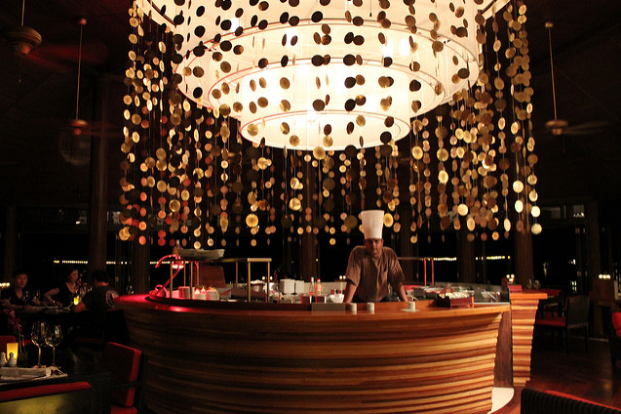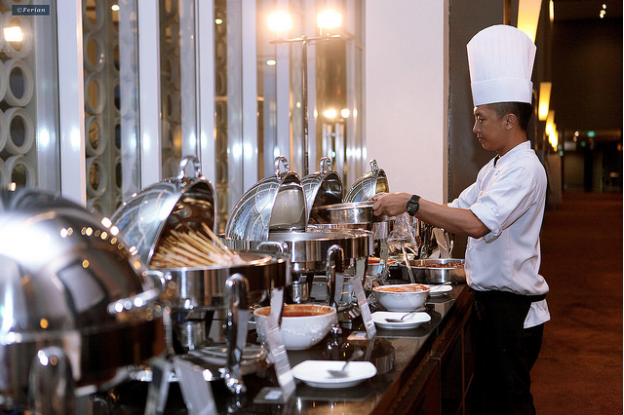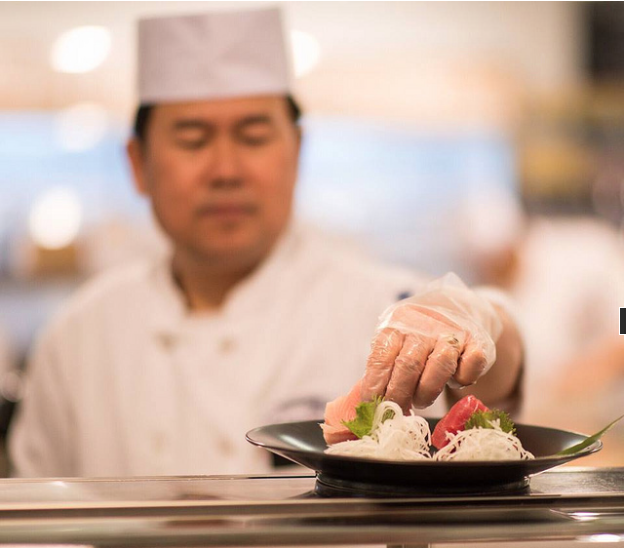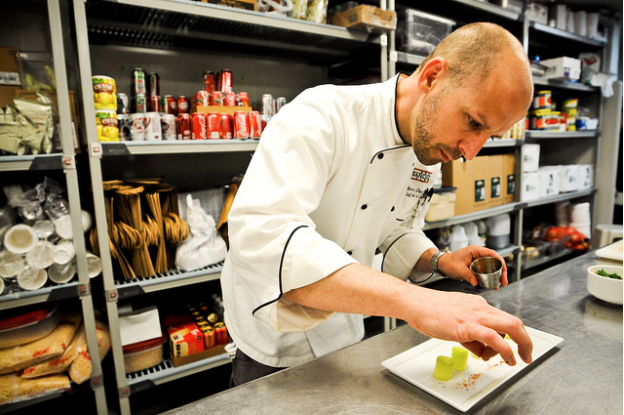
(Source: Flickr)
Chef burnout is a very real thing, and it is particularly rampant in the restaurant industry. The stress and demands of the bustling restaurant setting can prove too much for kitchen employees when they don’t have enough support and time off. This can lead to exhaustion, resentment, and dissatisfaction.
When a chef reaches the point of burnout, it can be a code red for the restaurant, reducing the quality of the food, which will discourage customers from coming back to your restaurant. To ensure that your chefs stay healthy, happy, and able to fulfill their duties, it’s important to promote a sustainable work schedule and good quality of life. Here are just eight ways that you can help reduce chef burnout in your establishment.
- Offer targeted employee training. If you read this blog frequently, you already have an idea of how important employee training is for every staff member in a restaurant, from the dishwasher to the servers to the restaurant manager. Chefs are no different.
It’s often incorrectly assumed that since a chef is trained (either self-taught or via a culinary school) in the culinary arts, that they are prepared for their job. While it’s true that they may be prepared to prep mass quantities of food, there are valuable delegation and people skills that might not be taught in culinary school. Offering targeted training for your chefs that allows them to develop people skills and to define their boundaries is very helpful in reducing chef burnout. - Have a restaurant manager. A restaurant manager provides an invaluable asset to your restaurant, helping the ship run smoothly in all aspects. When you don’t have a restaurant manager, frequently, the head chef becomes the go-to figure. The only problem is that often, the chef doesn’t actually want this responsibility; he or she just wants to create beautiful food.
This added responsibility can create burnout very quickly, when they are responsible for creating the cuisine as well as customer service and HR duties. Having a restaurant manager can not only help ease the pressure on the chef, but can help your restaurant operate more efficiently as a whole. - Help promote positive split shifts. A so-called “split shift” occurs when an employee works two shifts on one day with a break in between. For example, if a restaurant is open from 11-2 for lunch but then closes until 5pm for dinner, the chef might have 2:30-4:30pm off.
To make sure that your employees can make the most of their time off and refresh, allow them to take this time for personal needs. Be understanding if they need to make doctor’s appointments or pick up kids during these hours, and offer them added time if needed. A little flexibility goes a long way in terms of improving your chef’s quality of life.
- Offer two successive days off. If you work in an office setting, you typically have Saturday and Sunday off of work. This time is necessary to recharge and come back to work renewed. Rarely do chefs have the luxury of having Saturday and Sunday off, but try to the best of your ability to offer two days off in a row. Or if it’s not possible to give them two days off in a row every single week, try to do it as much as possible.
Even if it’s a Monday and Tuesday or a Wednesday and Thursday off in a row, the two succeeding days allow them to take care of things, renew, and come back to work refreshed. It’s well worth carving out time to give your chefs an adequate break.
 (Source: Flickr)
(Source: Flickr)
- Show them that you appreciate them. Your chefs work hard; it’s important that they know how valued they are. You can show your appreciation in many ways, but here are just a few ideas:
– If chefs are working late, offer a cab service to take them home.
– Offer bonuses based on the restaurant’s success.
– Buy them new kitchen equipment.
– Allow them to choose items at the farmer’s market to create special menu items.
– Invest in their culinary training. - Check in with them frequently. The best way to ascertain whether or not your chef is approaching burnout? Talk to them. Have frequent check-ins, either on the fly during quiet times in the kitchen, or you can schedule a time weekly to check in with them and see how they are doing.
While your check-in might not be specifically to ask about burnout, it will be a time during which you can see how they seem to be faring. Observe the chef’s state of mind. If they seem frazzled or unhappy on a regular basis, it might be time to figure out how you can ease their stress levels. It’s not just for their benefit; it’s for the benefit of your establishment, too!
(Source: Flickr) - Make sure your kitchen is adequately staffed. This is a short and simple tip, but an important one. An understaffed kitchen is a recipe for peak hour disaster as well as chef burnout. Make sure that you have enough staff in your kitchen to accommodate the demand put on it, particularly during busy times.
This might mean hiring part time staff to offer support, or it might mean having more full time staff. It’s important to make sure that you’re not over-extending your chefs on a regular basis. - When in doubt, enforce time off. Even under the best of conditions, chef burnout is still a possibility. While you can take proactive steps to reduce and avoid it, the fact remains that the kitchen is a high-pressure atmosphere. Sometimes, the only option is to get out of the kitchen for a little while.
If you notice that your chef looks unhealthy, deeply unhappy, or stressed and overworked, it might be time to consider giving them some time off. This could be giving them a paid afternoon off on a slow day, or insisting that they take their accrued vacation time. Yes, sometimes it can be hard to make due without your chef for a few hours or days, but it’s easier to do than it is to lose a valuable employee.
 (Source: Flickr)
(Source: Flickr)
Conclusion: Cultivating a good work-life balance is necessary in any profession, but it’s particularly important in the hectic and stressful restaurant setting. Your restaurant chefs are the heart and soul of your restaurant, and are responsible for creating the cuisine which can cause your restaurant to flourish. By making sure that your chefs have a good quality of life, you will ensure that they are healthier and more motivated to help your restaurant succeed. Investing in your chefs’ well being will help your restaurant maintain long term employees and attain sustainable success.
How do you promote your chefs’ sense of well being?


